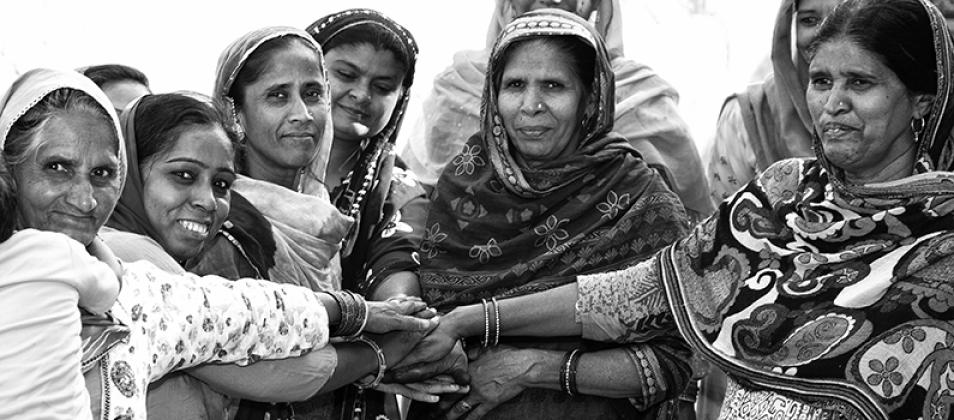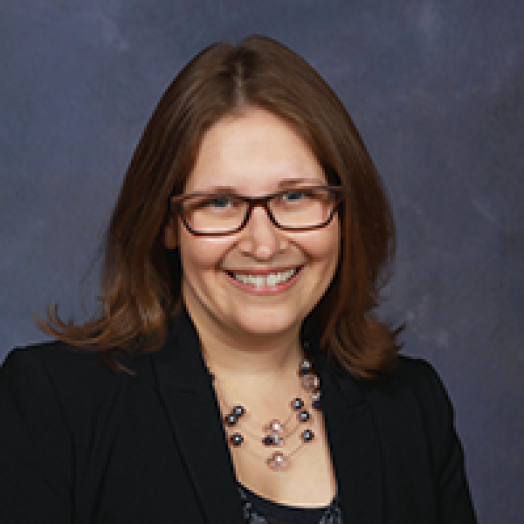
Contributing to United Nations Special Rapporteurs’ Data Collection
The United Nations (UN) Human Rights Council appoints Special Rapporteurs to monitor, advise and publicly report on human rights situations and violations around the world. In 2020, the International Foundation for Electoral Systems (IFES) responded to calls for information from the Special Rapporteurs on minority rights, freedom of religion or belief, internally displaced persons and disability rights.
IFES drew on its global experience empowering ethnic, religious and linguistic minorities to participate in political processes and highlighted issues that impact their participation, as well as opportunities for engagement. Overall, IFES’ work provides UN Special Rapporteurs with insights from our vast network and technical experience in advancing minority rights and freedom of religion in the context of strengthening democratic rights.
IFES partners with state institutions, civil society, academia and minority community representatives and organizations to build partnerships that increase knowledge of rights, capacity to advocate and opportunities for leadership development both within the minority groups and in broader state and private institutions and the public. IFES programs that support the rights of minorities reflect and align with our commitment to anti-racism and include:
- Civic and voter education campaigns targeting minority groups
- Capacity building of local minority organizations and activists for grassroots and governmental outreach
- Increasing capacity of state institutions such as election commissions to effectively address democratic inclusion
- Protecting minorities against disinformation and hate speech online
IFES responded to a call from the UN Special Rapporteur on Minority Issues drawing from our experiences in a range of countries, including Myanmar, Georgia, Nigeria, India, Ukraine, Libya, the Autonomous Region of Bougainville and Indonesia.
IFES also responded to a call for input from the UN Special Rapporteur on Freedom of Religion or Belief that called for detailed case studies, in this case offering a detailed case study and highlighting our “Muslim Women’s Initiative” (MWI).
Muslim Women’s Initiative
The MWI was implemented by IFES and civil society partners from 2005-11 and promoted the empowerment of Muslim women as active agents in developing their own communities, stopping cycles of marginalization and promoting their social, economic and political participation. It did this through a phased approach that:
- Addressed the knowledge gap among Muslim women about their rights in the Quran and under Indian law;
- Supported Muslim women in accessing their rights;
- Fostered understanding among all sections of the Muslim community – including men and boys – about women’s rights;
- Encouraged participation in women’s self-help groups and income-generation projects;
- Developed leadership skills among Muslim women; and
- Created community-based support for Muslim women’s rights.
As a result, the MWI reached over 30,000 women and men, and led to the emergence of women and youth as community leaders. Over 400 Muslim women’s groups were formed, and the program provided over 7,000 women with counseling services and legal aid. MWI recognized that advancing women’s equality cannot be seen only as something that benefits women, but rather as a priority that enhances the wellbeing of women and men. Additionally, the program undertook educational programs to sensitize over 500 midlevel religious scholars and madrasas about women’s rights, and 1,500 male and female students attended courses on women’s rights in Muslim high schools. This framing helped motivate religious leaders to share more equality-focused interpretations of Islam, in keeping with Islamic principles, and encourage men to support their wives, sisters and family members to engage in public life and economic ventures.
Summary of Recommendations to the UN Special Rapporteurs on Minority Rights and Freedom of Religion or Belief
- Existing knowledge, beliefs and strengths of marginalized groups should be considered in developing and implementing programs for democratic inclusion.
- Individuals should not be viewed as victims or passive recipients of support, but rather as active protagonists and partners in their and their communities’ development.
- Rights education and support to access those rights builds confidence in marginalized groups, which is needed for greater social and political participation.
- In any project whose goal is to improve the lives of women, the other half of the community cannot be ignored. Involving men in women’s empowerment programs is critical.
- Youth are a major source of idealism, energy and enthusiasm in communities. Harnessing this potential through school-based programs can be highly effective.
- Linkages between government and private structures and services and engagement in mainstream political and governance processes are critical.
- The various ways in which minority women are marginalized – including poverty, discrimination, lack of education, disabilities and poor health – require multidimensional interventions.
- Robust monitoring and evaluation and research should be part of program design to ensure efficacy and inform the wider discourse and practice.
- Efforts to empower minorities must utilize empirical data that outline the conditions and challenges faced by various groups.
- Remote and rural locations previously underserved by assistance efforts and historically ignored by national governments should be prioritized.
- Enforcing the equal rights of all citizens should begin with educating children and adolescents through educational opportunities, both formal and informal.
- In promoting sustainable change in behavior and attitudes, particularly among young adults and adolescents, assistance efforts need to be embraced and owned equally by local and national governments and civil society to enable and reinforce efforts to promote the equal rights of all citizens.
- Efforts to assist minority groups should be buttressed by collaboration with community leaders who already have credibility and recognition among their constituents, as well as with majority groups both locally and nationally.
Read IFES' submission to the Special Rapporteur on Minority Issues.
Read IFES' submission to the Special Rapporteur on Freedom of Religion or Belief.
Article by Yatin Jain, IFES program associate for Asia-Pacific, and infographic by Tanya Azuaje, IFES program coordinator for the Americas.
Published on December 10, 2020.















